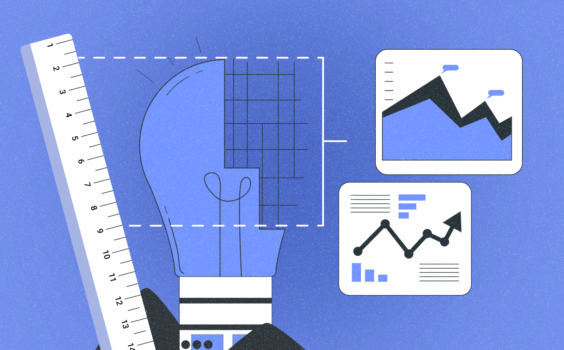Meticulous Interviewing
Understanding Meticulous Interviewing
Meticulous interviewing is a crucial aspect of the hiring process that involves a thorough, detailed, and carefully planned approach to assessing candidates. This method goes beyond the standard interview techniques, delving deep into a candidate's skills, experiences, and potential to ensure the best possible fit for a position. By employing meticulous interviewing techniques, organizations can significantly improve their hiring decisions, reduce turnover rates, and ultimately enhance overall team performance.
The Importance of Meticulous Interviewing in Today's Job Market
In an increasingly competitive job market, where talent acquisition has become a critical factor in organizational success, meticulous interviewing has gained paramount importance. This approach allows companies to differentiate between candidates who may appear similar on paper but have vastly different potentials in practice. By conducting thorough interviews, employers can uncover valuable insights about a candidate's problem-solving abilities, cultural fit, and long-term career aspirations.
Moreover, meticulous interviewing helps mitigate the risks associated with poor hiring decisions. The cost of a bad hire can be substantial, not only in terms of financial resources but also in terms of team morale and productivity. By investing time and effort in a comprehensive interview process, organizations can significantly reduce these risks and make more informed decisions.
Key Components of Meticulous Interviewing
1. Thorough Preparation
One of the cornerstones of meticulous interviewing is thorough preparation. This involves several key steps:
- Analyzing the job description: Interviewers should have a deep understanding of the role they're hiring for, including its responsibilities, required skills, and how it fits into the broader organizational structure.
- Researching the candidate: Prior to the interview, it's essential to review the candidate's resume, cover letter, and any other available information. This may include their online presence, portfolios, or previous work samples.
- Developing a structured interview guide: Create a comprehensive list of questions that cover all aspects of the role and the candidate's potential fit within the organization.
- Preparing situational scenarios: Develop relevant scenarios or case studies that allow candidates to demonstrate their problem-solving skills and thought processes.
2. In-depth Questioning Techniques
Meticulous interviewing relies heavily on sophisticated questioning techniques that go beyond surface-level inquiries. Some effective methods include:
- Behavioral questions: These questions ask candidates to provide specific examples of how they've handled situations in the past, providing insight into their experience and problem-solving abilities.
- Situational questions: Presenting hypothetical scenarios allows interviewers to assess how candidates might approach challenges they could face in the role.
- Competency-based questions: These questions focus on specific skills or attributes required for the position, allowing candidates to demonstrate their proficiency.
- Follow-up questions: Delving deeper into a candidate's responses can reveal additional information and help verify the authenticity of their claims.
3. Active Listening and Observation
Meticulous interviewing isn't just about asking the right questions; it's also about carefully listening to and observing the candidate's responses. This includes:
- Paying attention to non-verbal cues: Body language, tone of voice, and facial expressions can provide valuable insights into a candidate's confidence, enthusiasm, and sincerity.
- Taking detailed notes: Documenting specific examples and responses helps in the evaluation process and ensures important details aren't forgotten.
- Identifying inconsistencies: By actively listening, interviewers can spot any discrepancies in a candidate's responses and ask for clarification.
4. Comprehensive Assessment
A meticulous interview process often involves multiple stages and various assessment methods, such as:
- Technical assessments: For roles requiring specific skills, practical tests or coding challenges can provide objective measures of a candidate's abilities.
- Panel interviews: Involving multiple team members in the interview process can offer diverse perspectives and a more holistic evaluation.
- Personality assessments: While not a sole determinant, personality tests can provide additional insights into a candidate's work style and cultural fit.
- Reference checks: Thorough reference checks can verify a candidate's claims and provide additional context about their past performance.
Best Practices for Implementing Meticulous Interviewing
1. Standardization and Consistency
To ensure fairness and comparability among candidates, it's crucial to standardize the interview process. This includes:
- Using a consistent set of core questions for all candidates applying for the same position.
- Establishing clear evaluation criteria and rating scales.
- Training all interviewers on the meticulous interviewing process and evaluation methods.
- Regularly reviewing and updating the interview process based on feedback and results.
2. Creating a Positive Candidate Experience
While meticulous interviewing is thorough, it's important to ensure that the process remains positive and engaging for candidates. This can be achieved by:
- Clearly communicating the interview process and expectations to candidates in advance.
- Providing a welcoming and comfortable environment for interviews.
- Allowing time for candidates to ask questions and learn about the organization.
- Offering timely feedback and updates throughout the hiring process.
3. Leveraging Technology
Modern technology can significantly enhance the meticulous interviewing process:
- Video interviewing platforms can facilitate remote interviews and allow for easy recording and review.
- Applicant tracking systems (ATS) can help manage candidate information and streamline the evaluation process.
- AI-powered tools can assist in initial candidate screening and provide insights based on language analysis.
4. Continuous Improvement
To maintain the effectiveness of meticulous interviewing, organizations should:
- Regularly analyze hiring outcomes and correlate them with interview performance.
- Gather feedback from both successful hires and those who decline offers to improve the process.
- Stay updated on industry best practices and emerging trends in interviewing techniques.
Challenges and Considerations in Meticulous Interviewing
1. Time and Resource Intensity
One of the primary challenges of meticulous interviewing is the significant time and resource investment required. This process often involves multiple rounds of interviews, assessments, and evaluations, which can be time-consuming for both the organization and the candidates. To address this:
- Prioritize roles that would benefit most from meticulous interviewing, such as senior positions or roles with high impact on the organization.
- Streamline the process by using initial screening methods to identify the most promising candidates before proceeding with in-depth interviews.
- Utilize technology to automate certain aspects of the process, such as scheduling and initial assessments.
2. Potential for Bias
Despite its thoroughness, meticulous interviewing is not immune to the risk of unconscious bias. To mitigate this:
- Implement structured interviewing techniques that focus on job-related criteria.
- Provide unconscious bias training for all interviewers.
- Use diverse interview panels to bring multiple perspectives to the evaluation process.
- Regularly review hiring decisions to identify any patterns that might indicate bias.
3. Balancing Depth with Efficiency
While meticulous interviewing aims to gather comprehensive information about candidates, it's important to strike a balance between thoroughness and efficiency. Strategies to achieve this include:
- Focusing on the most critical competencies and skills required for the role.
- Using a combination of different assessment methods to gather diverse data points efficiently.
- Setting time limits for each interview stage to ensure the process doesn't become overly prolonged.
The Future of Meticulous Interviewing
1. Integration of Artificial Intelligence
As AI technology continues to advance, its role in meticulous interviewing is likely to expand. Future developments may include:
- AI-powered interview analysis tools that can provide insights on candidate responses, tone, and non-verbal cues.
- Predictive analytics that can help assess a candidate's potential for success based on various data points.
- Virtual reality simulations that allow candidates to demonstrate their skills in realistic job scenarios.
2. Focus on Soft Skills and Adaptability
As the nature of work continues to evolve, meticulous interviewing is likely to place increasing emphasis on soft skills and adaptability. This may involve:
- Developing more sophisticated methods for assessing emotional intelligence and interpersonal skills.
- Creating scenarios that test a candidate's ability to learn and adapt to new situations quickly.
- Incorporating assessments of cultural add rather than just cultural fit, valuing diversity of thought and experience.
3. Continuous Assessment Models
The future of meticulous interviewing may extend beyond the hiring process, evolving into continuous assessment models that:
- Integrate onboarding experiences into the evaluation process.
- Implement regular check-ins and performance assessments to validate hiring decisions.
- Use data from successful hires to continually refine and improve the interviewing process.
Conclusion
Meticulous interviewing represents a significant evolution in the hiring process, offering organizations a powerful tool to identify and secure top talent. By employing a thorough, structured, and multifaceted approach to candidate assessment, companies can make more informed hiring decisions, reduce turnover, and build stronger, more effective teams.
While the implementation of meticulous interviewing techniques requires a substantial investment of time and resources, the potential returns in terms of improved hiring outcomes and organizational performance are considerable. As the job market continues to evolve and competition for top talent intensifies, the ability to conduct thorough, insightful interviews will become an increasingly valuable skill for HR professionals and hiring managers.
Ultimately, the success of meticulous interviewing lies in its ability to provide a comprehensive understanding of a candidate's potential, going beyond surface-level impressions to uncover the true value an individual can bring to an organization. By continually refining and adapting these techniques, organizations can stay ahead in the talent acquisition landscape and build the high-performing teams necessary for success in today's dynamic business environment.


